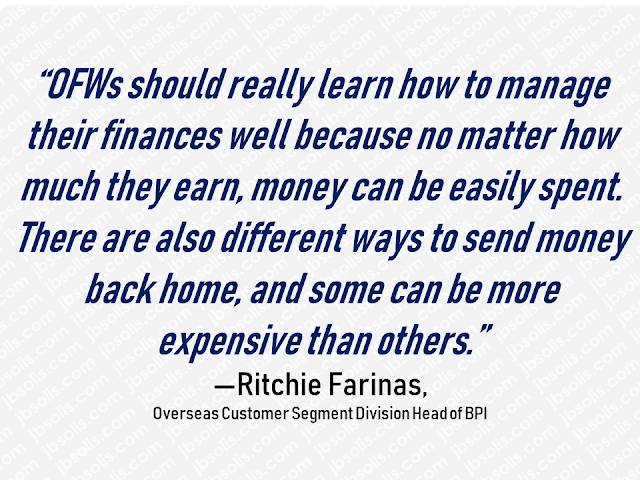Many Filipinos are going abroad for decent salaries which they think will not be possible if they will stay in the Philippines. Local jobs cannot provide adequate income that could meet their daily expenses, bills, payment of rent, mortgage, monthly amortization, tuition fees for their kids, etc. By working abroad, overseas Filipino workers in the Middle East, Europe or in any part of the world can earn much more in lesser time.
But the sad truth is, working abroad will not last for a lifetime. As humans, we will get old, get sick and tired. Sooner or later we will retire and come back home for good. Are all OFWs ready for their retirement? Do they have at least a retirement plan? Do they have enough savings for going home for good?
But the sad truth is, working abroad will not last for a lifetime. As humans, we will get old, get sick and tired. Sooner or later we will retire and come back home for good. Are all OFWs ready for their retirement? Do they have at least a retirement plan? Do they have enough savings for going home for good?
Advertisement
Sponsored Links
The Bangko Sentral ng Pilipinas’ second-quarter Consumer Expectations Survey showed that only 33.9 percent of households that received OFW remittances allot money to savings, and only 5.2 percent have investments.

The statistics of OFWs who save for their retirement is only at very slim 8 out of 10, according to BPI.
Farinas said overseas Filipinos, who find it hard to do saving and investing must look for bank services that will help them not only send money back home but can make it easier for them to save and invest as well.
Read also: 7 Things OFWs Should Prepare Before Going Home
BPI has been taking some steps to help overseas Filipinos become more financially stable and secure, according to Farinas.
“Through a needs-based approach to financial education and planning, BPI aims to bridge the gap between remitters and beneficiaries,” he added.

